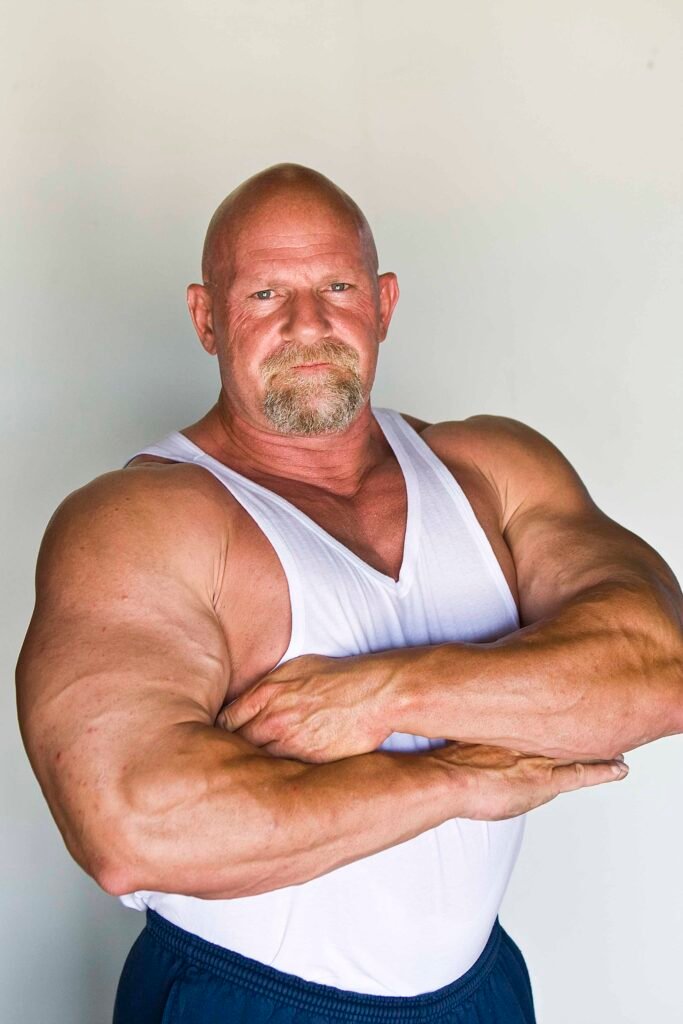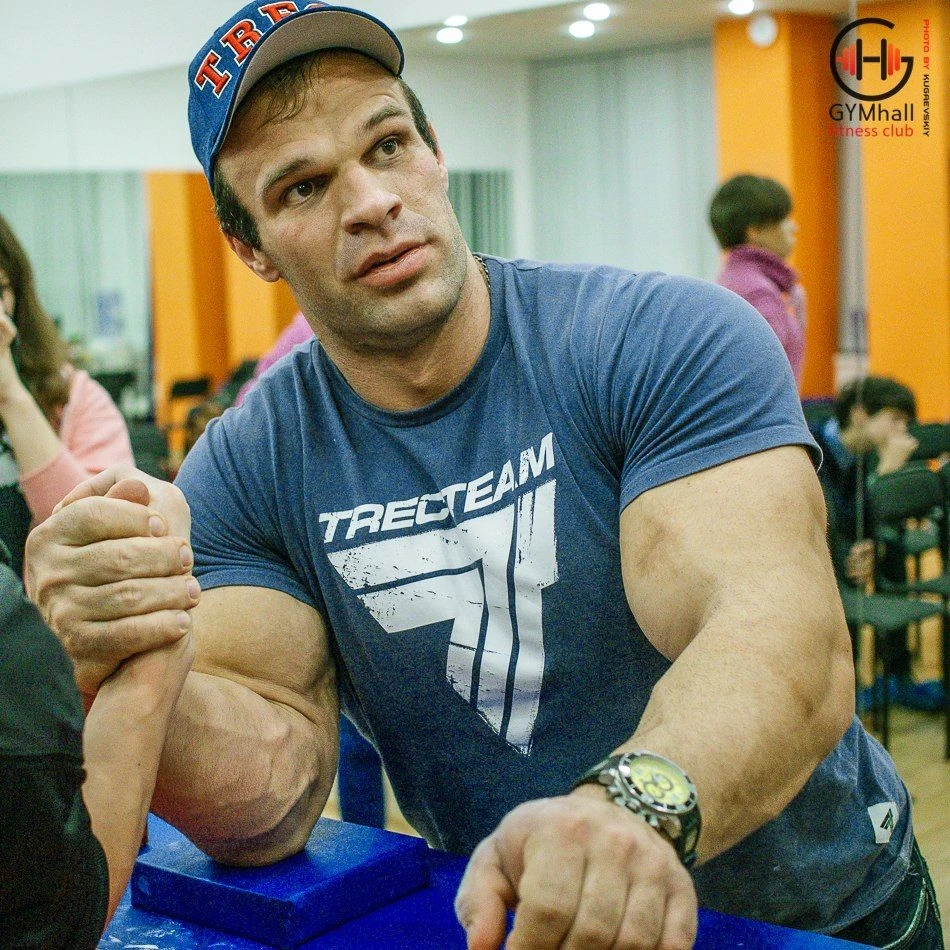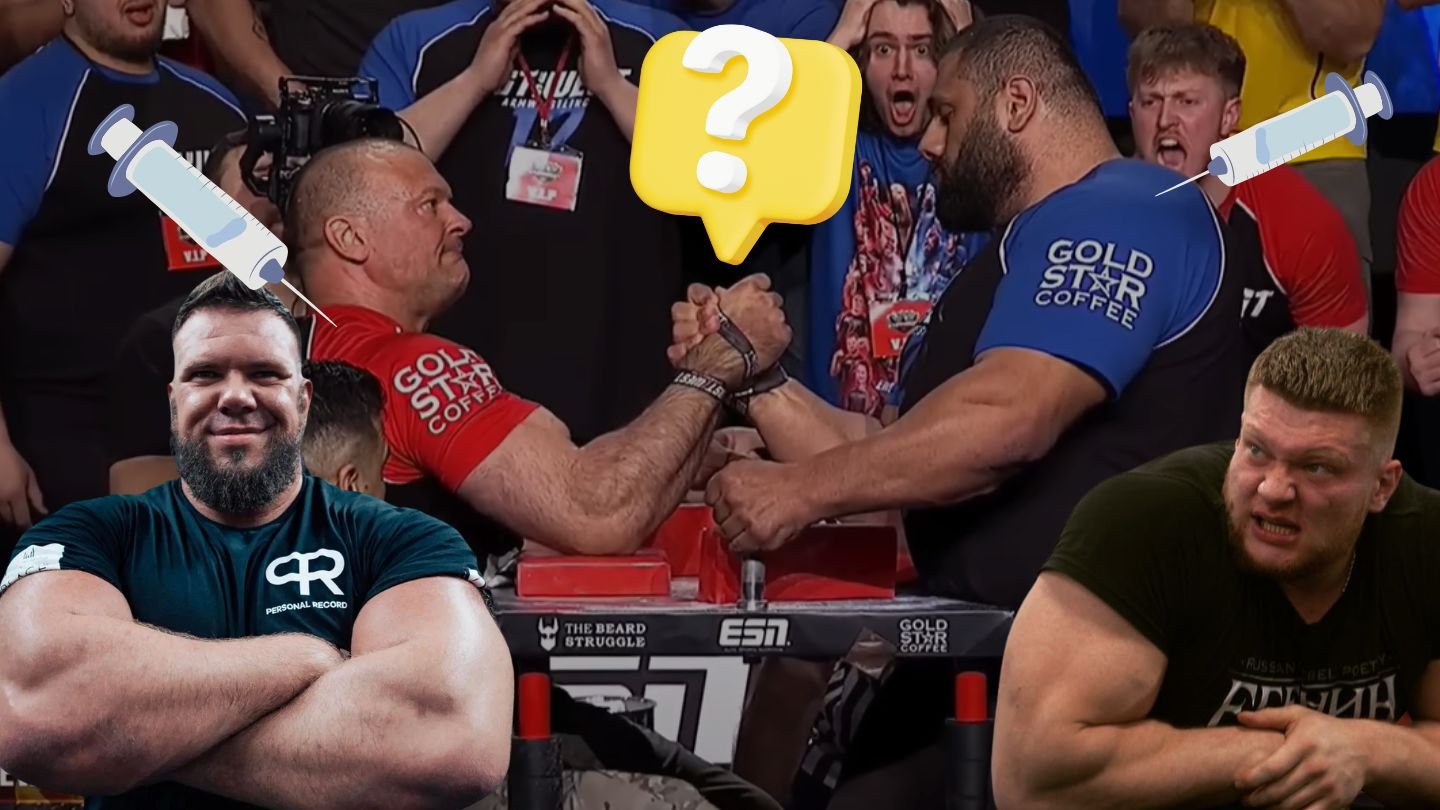When we look at the impressive bodies of the best arm wrestling athletes, such as Levan Saginashvili, Artyom Morozov or Ermes Gasparini, one question often arises. : Are these champions doped? Their imposing physiques and their exploits sometimes seem to defy human limits. But is armwrestling, as a growing sport, really affected by doping, and what measures are in place to prevent it? This article explores in detail these questions and the challenges of anti-doping controls in this environment.
Anti-doping rules for arm wrestling tournaments
In amateur tournaments organized by federations such as the World Armwrestling Federation (WAF) and the International Armwrestling Federation (IAF), strict anti-doping measures are in place. The regulations clearly state that each athlete must comply with anti-doping controls, and participation in competitions is conditional on compliance.
A detailed list of prohibited substances is provided, and no traces of these products may be detected during tests carried out on participants. In the event of a positive result, the athlete is automatically disqualified and may be subject to a suspension of several months or even years. In the event of a repeat offence, more severe sanctions, including a lifetime ban, may be applied.
However, as in all sports, the risk exists that a doped athlete escapes controls, despite the measures put in place. This is a constant challenge for federations, which strive to continually improve their procedures.
The absence of anti-doping regulations in professional supermatches
On the other hand, in professional supermatch format events such asEast vs West or King of the Table — where arm wrestling stars compete in the most high-profile matches in the world — no anti-doping protocol has been established to date. This means that an athlete is free to consume performance enhancing drugs (PEDs – Performance Enhancing Drugs) without breaking the rules.
It is therefore not surprising, especially in the open category, that some competitors choose to take these substances to maximize their performance and compete against opponents who consume them, such as the world champion Levan Saginashvili, who publicly spoke in a video about the products he uses.
Recently, Engin Terzi, the founder of East vs West, admitted that it would be inevitable to introduce anti-doping tests in the near future, following a controversy involving an athlete. Although no date or procedure has been set, the introduction of doping controls could upset the balance of power in these events.
The absence of anti-doping rules in professional arm wrestling is nothing new. Athletes such as Richard Lupkes and Denis Cyplenkov, well known for their use of doping substances, have competed in supermatches without breaking the rules.


Do steroids really help you win?
The use of doping substances, and in particular steroids, is often associated with a significant gain in muscle mass and, consequently, weight. This may result in a change of category, forcing the athlete to face opponents of the same size. Thus, for competitions where categories are limited by weight, the advantage provided by taking substances is often attenuated. Indeed, whether the athlete consumes doping products or not, he will find himself facing competitors of similar weight.
However, claiming that a natural 75 kg athlete would have the same chances as a doped 75 kg athlete would be inaccurate, because certain substances can also improve endurance, recovery or resistance, offering additional benefits, although often less than those linked to a weight difference.
The notable exception is the open weight, or super heavyweight category, where there is no weight limit. In this category, size and mass become major assets, and the most massive athlete – often the one who consumes the most doping substances – has an advantage. In these competitions without anti-doping regulations, taking steroids becomes a form of one-upmanship, with athletes willing to take risks for their health in order to increase their chances of success.
It's not just a question of talent or dedication to training: it's also a question of who is prepared to compromise their health in order to win. While sacrifices are often necessary to reach the highest level, putting one's health at risk could be too high a price to pay. We therefore need to reflect on the impact of these practices on the ethics and integrity of sport.
The athletes' point of view
John Brzenk
John Brzenk, considered one of the greatest arm wrestling athletes of all time, has spoken out on the issue of doping several times throughout his career. He claims to have remained natural until he was 40, age at which he started taking testosterone to counter the loss of muscle massand the effects of aging. In 2022, he shared his views on the subject:
"For me, it's not a miracle solution. Even if it improves your performance by 2 or 3 %, the strength you gain won't turn you into an elite athlete. Arm-wrestling relies above all on ligaments, tendons and bone structure. What's more, it takes long-term commitment to become a top-level competitor. Yes, PEDs can help you gain muscle mass, but most people who take them aren't all that different once they get on an arm-wrestling table."
Brzenk thus highlights that, although performance-enhancing drugs may offer a minor advantage, they do not replace the training, technique and intrinsic strength necessary to excel in the sport.
To the question “Is it possible to become an arm wrestling champion without taking steroids?”, John Brzenk answers without hesitation that this is entirely possible, because it is precisely what he managed to do for 20 years(for example, he beat Denis Cyplenkov in 2008 and 2009). According to him, weight categories play a key role in this equation.
Brzenk advises young athletes, especially those under 40 years, to avoid the use of these products. He acknowledges, however, that things can change with age, when loss of muscle mass and other effects of aging begin to take hold.
Devon Larratt
For Devon Larratt, as long as the arm-wrestling does not benefit from a sufficient audience and financial resources remain limited, it will be difficult to implement anti-doping controls. Currently, the absence of these controls in the professional environment means that the use of doping substances is tolerated. According to him, it is up to each athlete to decide how far they are willing to go to reach the top. It is a personal decision that everyone must make based on their own ethics. In the current state of development of sport, the establishment of an anti-doping system is simply not realistic.
In a video published before his match against Levan Saginashvili at East vs West 12, when asked if he uses performance-enhancing substances, Larratt openly responds: “Yes, a lot. » Approaching fifty and aiming for the title of world champion in the Super Heavyweight category, where Levan is the undisputed number one,it is very likely that Larratt has used products to improve his performance and promote a gain in weight. muscle mass.
Following his loss to Levan, Larratt made the decision to give up the Super Heavyweight category and return to a lower weight class. It is therefore unclear what his future position will be regarding the use of these substances.


Leave a Comment